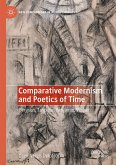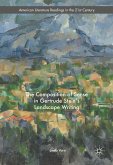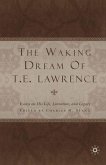This book examines the distinction between literary expatriation and exile through a 'contrapuntal reading' of modern Palestinian and American writing. It argues that exile, in the Palestinian case especially, is a political catastrophe; it is banishment by a colonial power. It suggests that, unlike expatriation (a choice of a foreign land over one's own), exile is a political rather than an artistic concept and is forced rather than voluntary - while exile can be emancipatory, it is always an unwelcome loss. In addition to its historical dimension, exile also entails a different perception of return to expatriation. This book frames expatriates as quintessentially American, particularly intellectuals and artists seeking a space of creativity and social dissidence in the experience of living away from home. At the heart of both literary discourses, however, is a preoccupation with home, belonging, identity, language, mobility and homecoming.
Dieser Download kann aus rechtlichen Gründen nur mit Rechnungsadresse in A, B, BG, CY, CZ, D, DK, EW, E, FIN, F, GR, HR, H, IRL, I, LT, L, LR, M, NL, PL, P, R, S, SLO, SK ausgeliefert werden.









